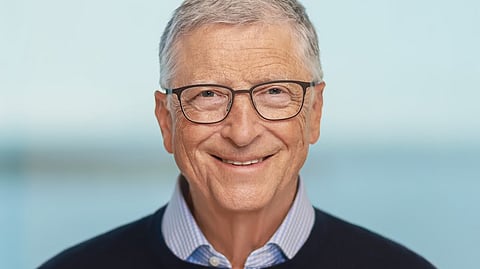

Imagine a world where most jobs no longer require human effort. According to Microsoft Co-founder Bill Gates, that future isn’t far off — it’s just a decade away.
Speaking on The Tonight Show with Jimmy Fallon on NBC, Gates predicted that artificial intelligence (AI) will soon handle many of the tasks that currently rely on human expertise. Professions that once demanded years of training — such as medicine and education — could see AI offering top-tier medical advice and tutoring, all at no cost.
“Great medical advice, great tutoring—it will all be free and commonplace,” Gates stated, signaling what he calls the arrival of “free intelligence.”
While he sees AI as a transformative force, he also acknowledges the rapid pace of change is “both exciting and a little unsettling.”
AI’s growing impact on jobs
The rise of AI is set to redefine the job market, though experts remain divided on the extent of its impact.
Some believe AI will primarily enhance human efficiency, leading to economic expansion and the creation of new roles. Others, however, warn that AI’s ability to automate tasks could significantly disrupt the workforce.
Gates, however, remains largely optimistic. He envisions AI solving some of the world’s most pressing challenges, from developing life-saving medical treatments to tackling climate change and making quality education universally accessible. Still, he acknowledges that some aspects of human experience will remain untouched by automation.
“There will always be things we prefer to do ourselves,” he told Fallon and added, “I doubt anyone wants to watch robots playing baseball.”
And it isn’t just the job market that’s feeling the impact. The creative world has also been shaken by AI’s rapid evolution.
It might be noted that OpenAI’s latest image-generation tool, integrated into ChatGPT, recently sparked a frenzy of Studio Ghibli-style AI-generated images.
The trend, which OpenAI CEO Sam Altman described as “biblical” in scale, has reignited debates over creative piracy, intellectual property rights, and the future of human artistry.
As AI continues to reshape industries, from labour to the arts, the question of how far its abilities go still remains.
